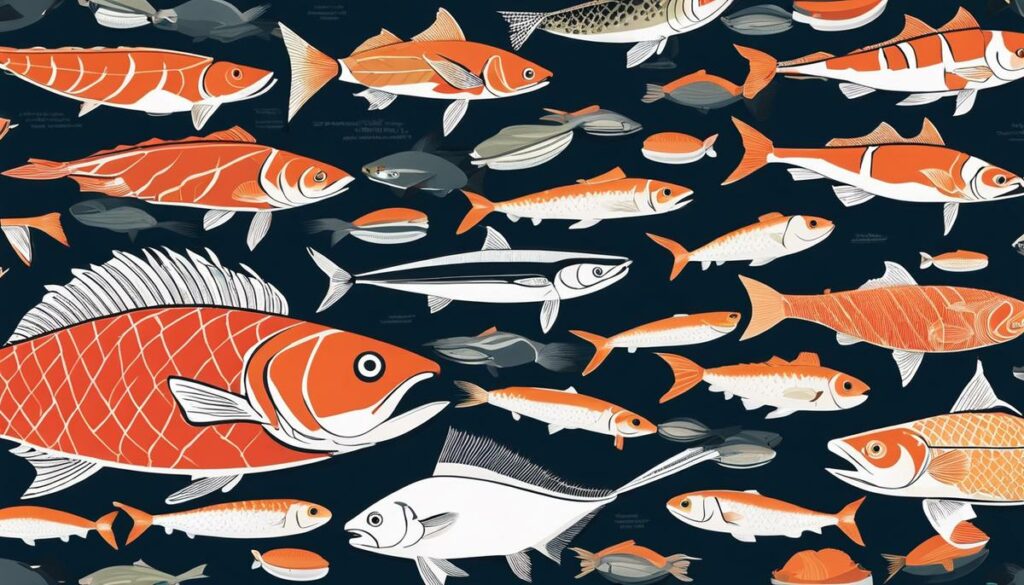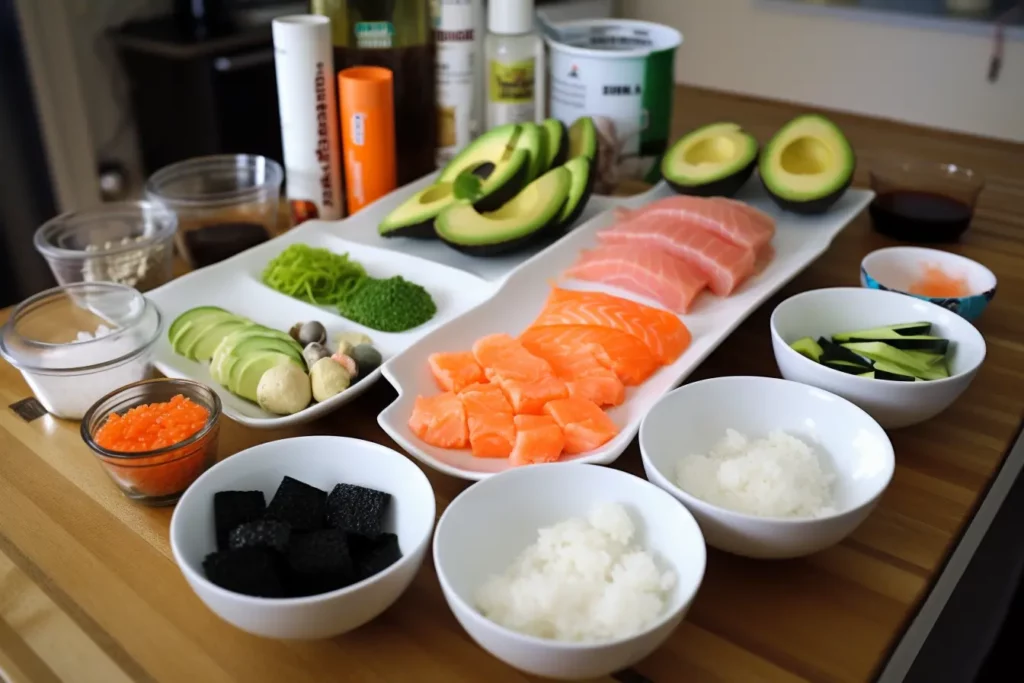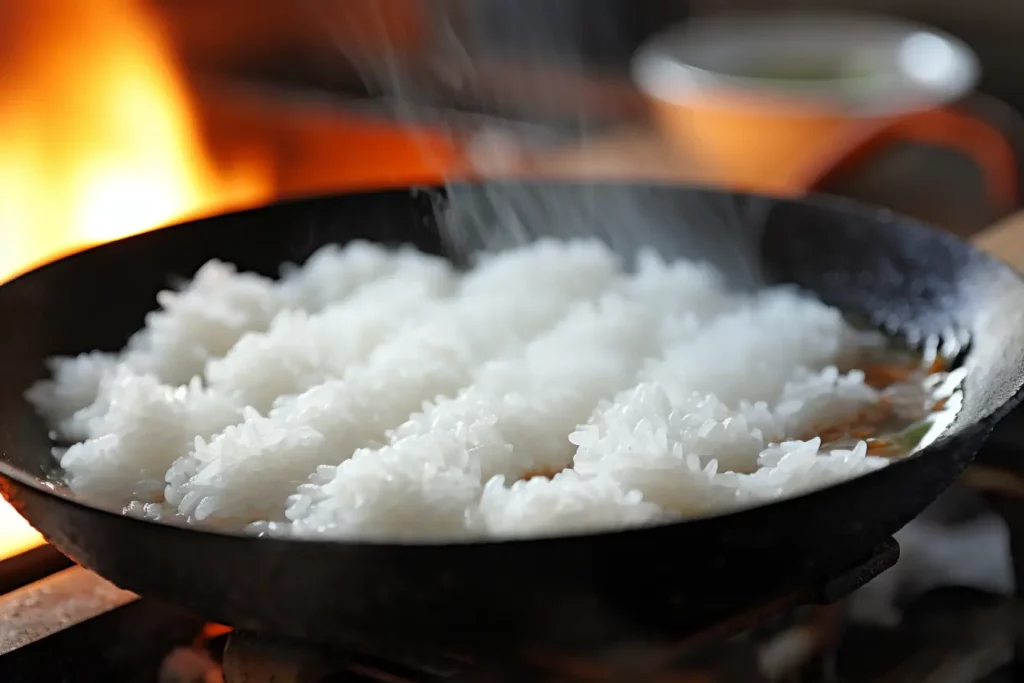Sushi, that delicately composed delicacy that has become an integral part of Japanese cuisine, has conquered a permanent place in our globalized culinary repertoire. But there is more to this exquisite delicacy than just explosions of flavour and artistic presentation: it challenges us to question the sustainability of our lifestyles and the ecological costs that our culinary delights entail. The environmental impacts of sushi consumption are diverse and complex, ranging from overfishing to the subtleties of fishing methods, and require us to take a deep look at the provenance and rearing of our food. This insightful look beneath the surface of nigiri and leaki allows us to make responsible choices and brings the fine balance between culinary enjoyment and environmental ethics to the center of our attention.
Environmental Impact of Sushi Consumption
The Impact of Our Sushi Appetite on the Blue Planet
As the culture of sushi spreads worldwide, both passion and awareness for this exquisite Japanese cuisine increases. But rarely is there any talk about the impact our insatiable hunger for sushi has on our planet.
As we savour our way through everything from nigiri to sashimi, the impact on marine ecosystems is huge. Increasing consumption is leading to overfishing of the world’s oceans. As a result, populations of popular sushi fish such as bluefin tuna and eel have declined sharply, threatening the biodiversity of the oceans.
This overfishing has a domino effect. The removal of large quantities of top predatory fish from their natural habitat leads to an imbalance in the marine food chain. This affects not only individual species, but entire marine ecosystems and the people who depend on them.
Sustainability is the order of the day. Responsible fishing and aquaculture initiatives that follow rigorous standards are becoming increasingly important to satisfy the appetite for sushi without harming our planet. Labels such as MSC and ASC can help you make conscious choices.
It’s not just about looking at the plate, it’s also about looking at the big picture and asking yourself, “Is my sushi enjoyment sustainable?” This is the only way the love of sushi and respect for our environment can go hand in hand. Sushi must not only flatter the palate, but also be good for the earth. Let’s take the first step in a direction that is not only stylish and trendy, but also responsible and environmentally conscious.

Sustainable practices in the sushi industry
To make a real difference in the sushi industry, leading players are embracing innovative and sustainable practices. It’s about enjoying the delicatessen experience of sushi without compromising on caring for our oceans. Here’s a look at the initiatives that are making waves.
Certified sustainability is the new standard for top sushi restaurants. Increasingly, consumers are finding sushi bars that stand out with seals such as ‘Ocean Wise’ or ‘Seafood Watch’. These are benchmarks for sustainable fishing and allow gourmets to see at a glance where sushi can be enjoyed with a clear conscience.
The revolution also lies in transparency. With QR codes on the menu, you can track exactly where the fish comes from, how it was caught, and the journey it has made to the plate. This creates trust and raises awareness of the origin of the ingredients.
Plant-based alternatives are also being used. Due to the popularity of vegan food, creative sushi variations are created that completely dispense with fish, but surprise in terms of taste. This not only reduces pressure on marine populations, but is also a response to the growing demand for vegetarian and vegan options.
Together with NGOs, sushi restaurants are involved in educational campaigns that address the importance of protecting the oceans. It’s about more than just food – it’s about a movement that honors the ocean while celebrating culinary art.
Last but not least, renewable materials are used for packaging to reduce plastic waste, which is particularly threatening marine habitats. Biodegradable packaging and chopsticks from renewable sources show that luxury and love for the environment can go hand in hand.
The sushi industry is at an inflection point. With every piece of nigiri served according to these principles, we choose a world where sustainability and enjoyment are not mutually exclusive, but complement each other.
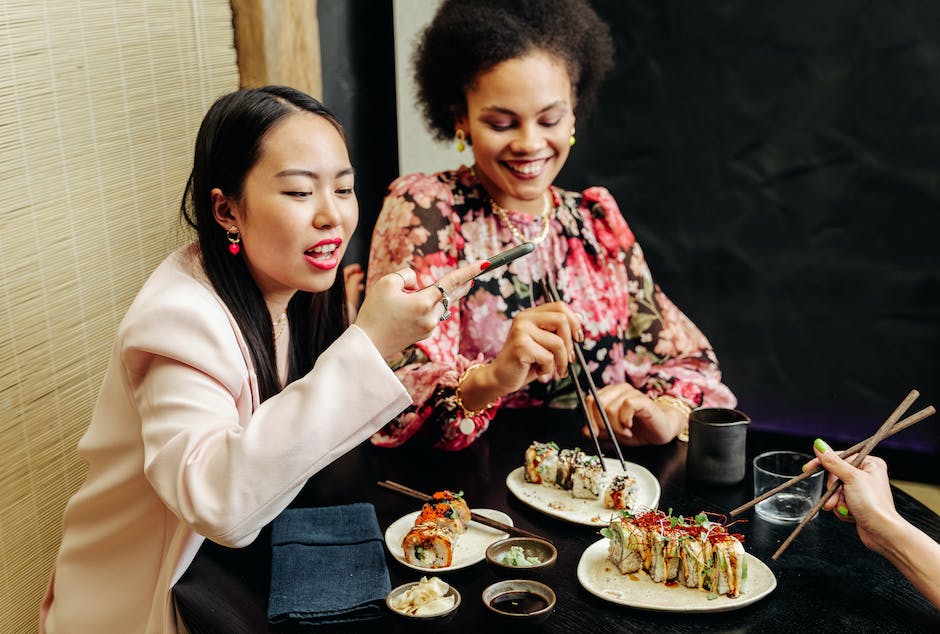
Alternative ingredients and sushi innovations
In times of ecological awareness, true trendsetters in the culinary world thrive when they combine innovation with delicious pleasure without harming our precious oceans. Vegan sushi variations, for example, are the new hit for those who appreciate the ritual of Japanese cuisine without sacrificing taste. Ingredients such as avocado, tofu and swelling rice are creatively experimented with to create textures that are in no way inferior to traditional sushi.
However, if your heart craves the authentic taste of fish, lab-grown fish products offer an innovative answer. Companies specializing in cell-based fish alternatives make it possible to enjoy the pleasures of sushi without the destructive consequences of overfishing. These so-called clean meats are actually grown from fish cells, but do not require fishing and are free of pollutants such as mercury.
Another step towards ocean-friendly gastronomy is the seasonal and local selection of seafood at sushi bars. This practice not only supports regional fishermen, but also ensures freshness and reduces the ecological footprint of transport. Combined with wild-caught fish from sustainably managed stocks, the result is a culinary experience where enjoyment and conscience go hand in hand.
Not to be forgotten is the concern to contribute to marine conservation beyond the horizon. Innovative offerings such as targeted support for marine conservation projects with every sushi menu sold are examples of social entrepreneurship. This means that every bite flows back into the protection of marine ecosystems.
In conclusion, it becomes clear that a future in which the well-being of our oceans and the enjoyment of pure culinary pleasure can coexist is no longer a distant vision. With a conscious consumption of sushi based on sustainable products, future-oriented alternatives and an ocean-friendly lifestyle, this dream becomes a reality. By doing it in style and responsibly, true art of enjoyment celebrates its greatest triumphs.
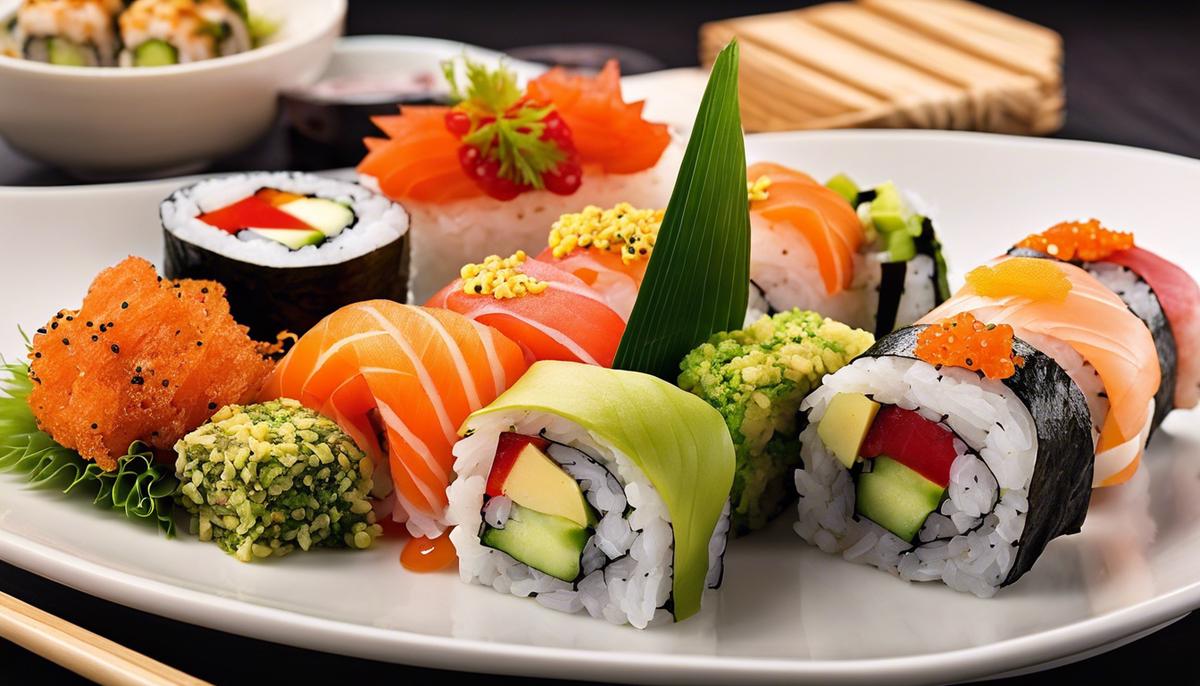
Personal responsibility and awareness-raising
Preserving the oceans starts on the plate – a motto that reflects today’s trend towards conscious enjoyment. It’s time to find a balance that satisfies both culinary dedication and ecological conscience. Individual consumption habits play a decisive role here. Every decision you make when enjoying sushi counts.
In order to actively contribute to the preservation of marine biology, it is essential to use seasonal specialties and regional products. Sushi lovers should find out when certain types of fish can be eaten with a clear conscience and also prefer local species that are not endangered. A visit to sushi masters who live this philosophy not only promotes awareness, but also increases the appreciation for seasonal delicacies.
In addition, many sushi bars now offer so-called ‘sustainability menus’, which contain only fish from stocks that are not overfished. Attention is paid to diversity and variety, so that excessive pressure is taken away from endangered fish populations. These menus allow the palate to be broadened and the horizon to be opened to new flavour compositions without disturbing the ecological balance.
Not to forget the importance of honest communication. Restaurants that report transparently about origin and fishing methods deserve recognition and support. As a consumer, opting for restaurants that attach great importance to openness and traceability promotes the responsible use of maritime resources.
Another way to integrate the idea of sustainability into everyday life is to support or organize educational events yourself. Through workshops or collaborations with marine conservation organizations, sushi fans can help educate the public about the consequences of fish consumption – a commitment that should be close to the heart of every marine lover.
Finally, it is everyone’s responsibility to pave the way for a future of sustainable sushi enjoyment. Constant education, conscious consumption choices and the support of sustainably managed sushi bars and their projects can make a significant contribution to ensuring that future generations can also experience the diversity and fascination of Japanese cuisine in harmony with respect for the sea. Those who follow this path not only live style-consciously, but also set an example for a sustainable, respectful and ocean-friendly way of life.
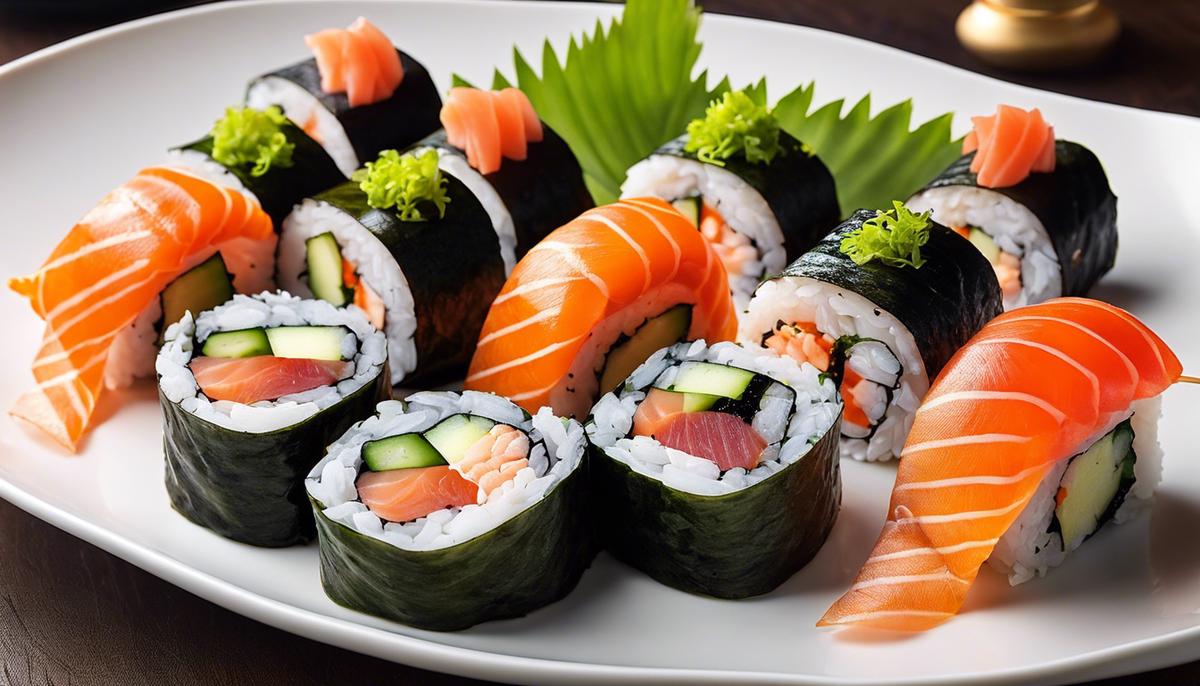
The art of sushi enjoyment exemplifies the harmony we should strive for between our appetite and respect for the environment. Far more than mere food intake, it embodies our deep connection to the ocean and its creatures, as well as the responsibility we have as consumers. By asking the right questions, paying attention to preferred certificates and supporting sustainable innovations, we are shaping a culinary future in which tradition and ecological responsibility are no longer in conflict, but mutually enriching. It’s up to us to make every bite a statement for a world worth living in and pave the way for positive change by making the choice to enjoy sushi consciously and wisely. A movement towards more sustainable sushi is already underway, and with every piece we eat, we can help make this trend the norm.
